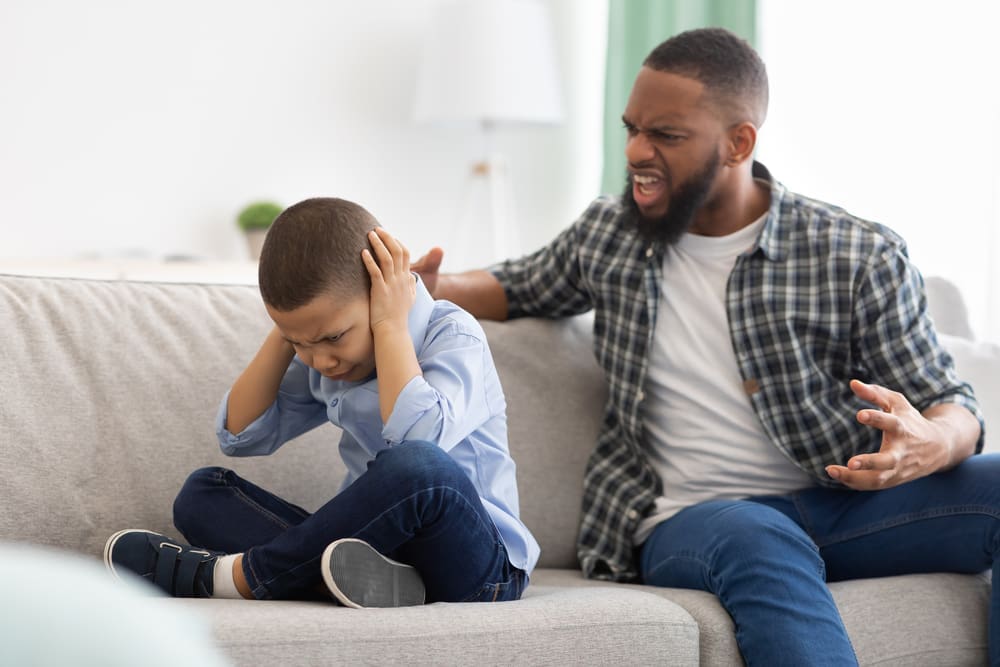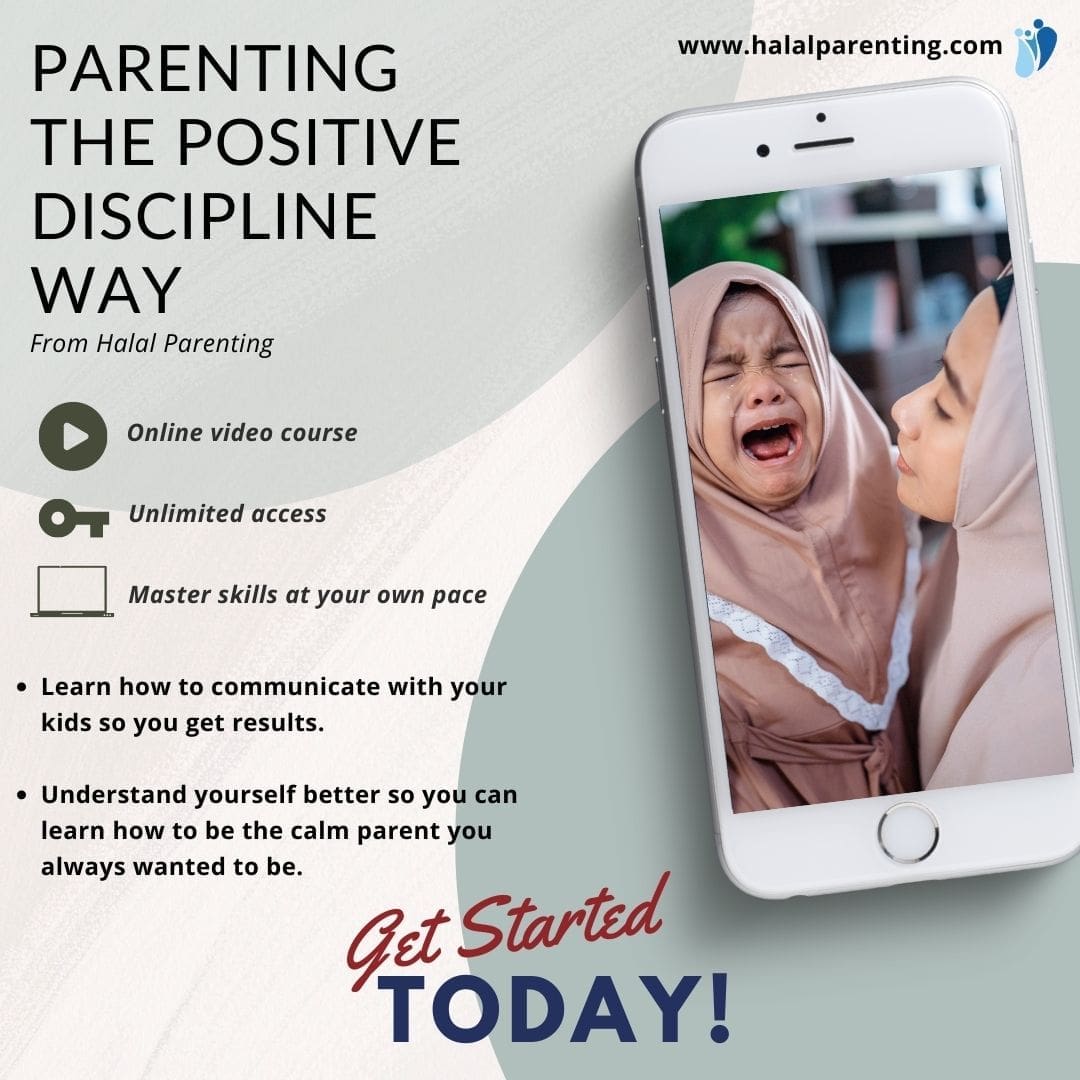Discipline: 10 Things to Avoid

The blessed Prophet of Allah (pbuh) said:
“He is not of us (the one) who does not have mercy on our young children, nor honor our elderly.”
[Tirmidhi]
The children who grew up around the Prophet Muhammad (pbuh) are witness to the loving and patient way that He treated them, even when they made mistakes. He said:
“There shall be no harm and no reciprocating harm.”
[Ibn Majah]
This Sunnah is also proof for us that Islam does not encourage physical or emotional harm towards our children. Neither does it give us parents permission to release our anger and frustration onto our kids, who are an innocent amanah entrusted to us by our Lord.
But it is no easy task raising children well. Both mothers and fathers are taking on more than ever before – working full-time, and now (thanks to the COVID-19 pandemic), taking on the role of educator on top of everything else, which is leaving less time to spend just connecting and being together. Running at full capacity with little energy means that our stress levels are at an all-time high.

When our kids mess up, or their behavior needs to be addressed, it’s time to discipline. It’s important to remember that there is a profound difference between the words PUNISHMENT (humiliates and inflicts emotional and/or physical pain on our children) and DISCIPLINE (guides our kids towards the desired behavior). Don’t let your stresses and negative energy that you are carrying transfer over into your interactions with your children – it may relieve some of your pressure, but you’ll feel terrible about it afterwards and so will your child.
So when your child does something wrong, the way you react and respond to them can instigate either a positive or negative chain reaction. Be sure to avoid using these ten discipline strategies with your kids:
1. Yelling and screaming has absolutely no effect on changing your child’s behavior.
The message that you are sending your child is that it’s okay for them to lose their cool too when people don’t listen to them.
2. Making empty threats are simply pointless.
Children are smart enough to learn quickly that you tend not follow through on your threats, so they don’t take you seriously. They’ll continue doing the same misbehavior which will result in you escalating your reaction to them.
3. Canceling out each other’s message
Undermining your spouse in front of your kids really sends a confusing message to your children, and they will learn to manipulate both parents to get what they want. Plus it’s disrespectful to your spouse – when parents are united in the family rules, it makes it harder for kids to get around them.
4. Punishment for reasons unknown.
Without setting some well-explained and understood ground rules for how you expect your kids to behave in the house (for example, no throwing balls inside), it can be confusing for kids to be punished because they didn’t know the rule existed. Similarly, consistency is key – if you try to correct a certain behavior only sometime, it can be frustratingly difficult for kids to know what they can and can’t do.
5. Bribing
We all know it works….the first time, but making this your go-to discipline tool means that your children will expect a monetary reward every single time you request their cooperation.
6. Engaging in a back and forth
Arguing about the consequences of misbehavior with your child is an exercise in futility. Make it clear that you are not open for negotiation.
7. Making comparisons
When you say things like “why can’t you be more like your brother?” you’re sending the message that your child isn’t good enough the way they are. Make it clear that you are separating your child from their behavior – that is, you don’t dislike your child as a person – you are disliking their behavior, and that is something that they can change.
8. Hitting or spanking
You may have been hit as a child and feel that you turned out fine, but that’s no reason to inflict the same pain on your children. Research shows that hitting children can make them more aggressive, and more likely to hide, sneak and lie in order to avoid getting caught and hit. Physical punishment does not mean children will be better behaved in the long run. Rasul’Allah (pbuh) never hit his own children, grandchildren or any of the children in his blessed household, and this should be the goal that we aspire to.
9. Giving in to whining
Hold your ground when your kids push back with whining – we know it can be unbearable and it’s so much easier just to give them what they want. But if you stand firm now, you’ll be less likely to hear that annoying whiny voice the next time they want something.
10. Do as I say, not as I do
Parenting shines a reflection on our own imperfections, and we must take great care to lead by example. It’s pointless to insist that our children are completely honest at all times if they see us lie to others in front of them, for example.
If you see this list and think, well that’s all well and good, but what is the best way for me to discipline my kids so they will listen to me the first time, the answer is to engage with your kids in a way that is positive and mutually respectful. It’s not easy, but it is possible with practice.
Good parenting doesn’t mean that you won’t feel frustrated, irritated, angry, confused, hurt and annoyed at times. Good parenting means interacting with your children in a way that is both kind and firm at the same time, despite your inner feelings.
Hitting, spanking, and yelling are actions that most parents feel uncomfortable doing but think they don’t have an alternative. Many parents are searching for ways to discipline their children so that they learn responsibility, cooperation, kindness, and respect.
“Discipline” means “to teach,” and it usually works best when it happens consistently, all day long.
Effective Discipline Without Hitting or Yelling
You can begin by deciding what you want your children to learn, and the skills and character qualities you want them to have. You need to consider their age and developmental abilities, as well as their individual temperaments. Positive Discipline Parenting Tools usually work best when they’re set up in advance, so you need to be able to think ahead.
There are a number of Positive Discipline books tailored to specific ages (Positive Discipline: The First Three Years; Positive Discipline for Preschoolers; and Positive Discipline for Teenagers are examples). You can learn more by reading these books; even better is to find the next available parenting workshop that works with your schedule. You might check the Parenting Classes page to see if any classes or workshops are being offered and are currently open for registration. These workshops take the strategies laid out in the books and through interactive role-playing and lots of practice, help empower you to have the tools you need at the ready when you need them.
It’s always a good thing to want to learn more as a parent. Children are never “bad”. A misbehaving child is a discouraged child. All of these books explain this much more thoroughly. And you might enjoy the article on the website about why children don’t listen. You and your children will both benefit from your desire to do the best job you possibly can.


